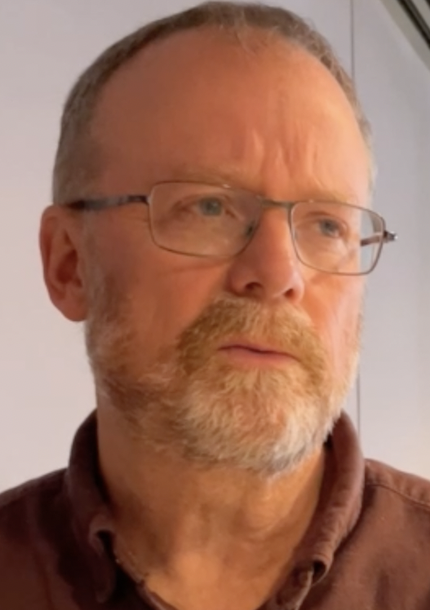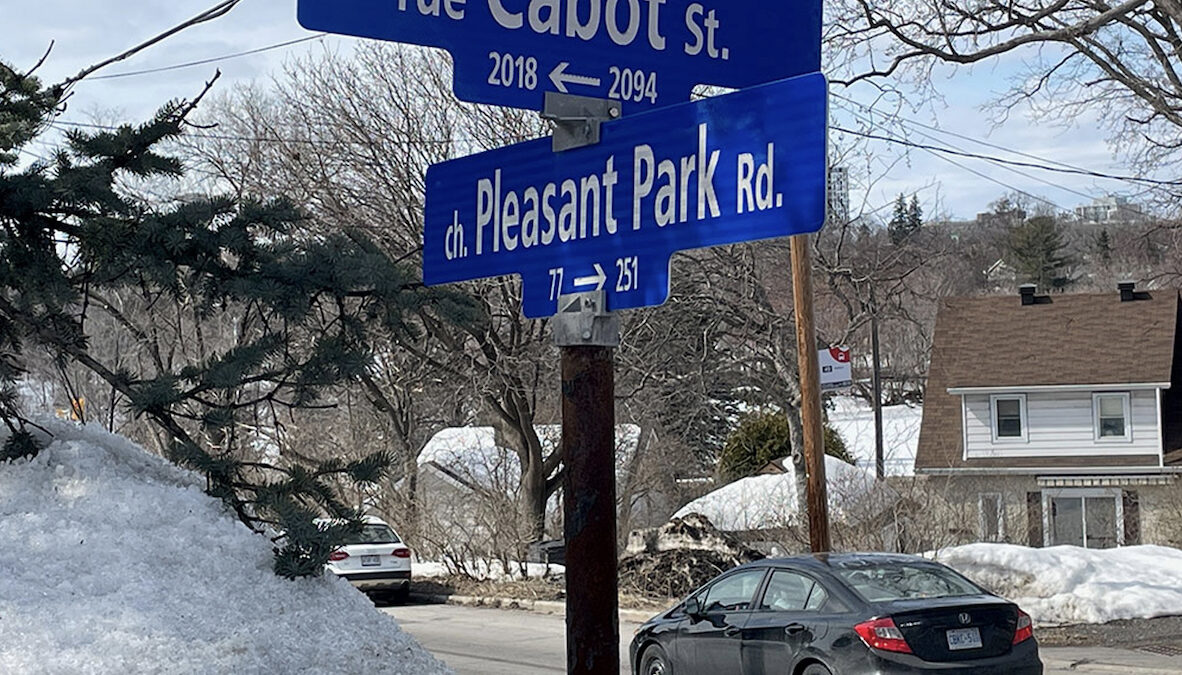Ottawa’s city council will soon receive a formal proposal for a revamped municipal commemoration policy for paying tribute to worthy citizens and historical figures in street names and other landmarks.
The proposed change comes at a time of heightened awareness of historical injustices and after months of research by a municipal advisory group in collaboration with the Capital Heritage Connexion organization.
The CHC, a non-profit umbrella organization that advocates for its member organizations and individuals on matters of heritage in Ottawa, held a public meeting about the issue on March 20. CHC had been asked to organize the engagement session by the cultural development and initiatives unit of the City of Ottawa.
Though scheduled in the middle of a work day, about 20 people attended in person and another 30 participated via Zoom. During the meeting, people were asked what they would want to see from a renewed commemoration policy.
“We need to continue the link with history in the present day,” said Elizabeth Hale, who took part in the session and works with the Commonwealth War Graves Commission. “If you stop telling those stories because they make people uncomfortable, you miss out on the background, the opportunity to tell that story.”
‘To say that you can’t change history is like saying that you can’t change science — that what you understood of science in the 1700s is the limit of what your understanding’s going to be.’
— Benjamin Weiss, Historical Society of Ottawa
In recent years, several landmarks in Ottawa have had their names changed in an effort to move away from Canada’s colonial past. In 2021, the Prince of Wales Bridge across the Ottawa River (named after the future King Edward VII in 1881) became the Chief William Commanda Bridge (after an elder of the Kitigan Zibi First Nation). And just this year, the National Capital Commission decided to change the Sir John A. Macdonald Parkway to a new name — which has not been chosen yet — in the midst of controversy over the 19th-century prime minister’s role in the residential school system.

These “contentious commemorations,” as city cultural planners have labelled them, were a main topic of City of Ottawa project lead Yadollah Parmoun during his presentation.
“Removal would not be the only option for contentious commemoration,” Parmoun emphasized. He suggested it would be possible to add additional notations on a nearby plaque about such figures’ negative aspects.
Parmoun said that many “contentious commemorations” have been identified in the city, but refused to share the list of landmarks with Capital Current at this time.
Parmoun did say that he wants the city to work more closely with Indigenous and other advocacy groups in the future. These groups have often been at the forefront of renaming reforms in the past, such as with the Macdonald Parkway — a campaign led by Ottawa’s current English-language poet laureate, Algonquin activist and storyteller Albert Dumont.
However, Parmoun said he wants to permanently involve Ottawa-area First Nations, Métis and Inuit organizations, as well as other ethnocultural groups, to “grow the number of commemorations related to underrepresented communities.”
One thing the new commemoration policy could create is a centralized, “arms-length” commemoration committee in charge of all official commemorations, including things such as public art displays and more traditional landmark naming. Currently, there are various departments of the municipal government and National Capital Commission that manage commemorations.
‘We need to continue the link with history in the present day. If you stop telling those stories because they make people uncomfortable, you miss out on the background, the opportunity to tell that story.’
— Elizabeth Hale, Commonwealth War Graves Commission
For example, commemorations of trees, benches and streets are all handled by different municipal departments. The CHC-organized engagement session was, in part, an opportunity for city officials to hear from heritage advocates how such a committee could be structured and how its members might be selected.
The CHC told Capital Current that its goal is “to increase access and inclusion to more diverse communities in Ottawa when it comes to commemorative engagement generally.
“Ottawa is made up of so many diverse groups which have all had an important impact on our city, and they should all have equal access to these discussions on commemoration,” the CHC stated. “Our role is to bridge and amplify voices of diverse groups in the community on this policy draft through our report and advocacy with CDI before they finalize the policy and submit it to Council.”
City council is the final authority on whether any proposed changes to the city’s commemorative policy will be implemented. Mayor Mark Sutcliffe attended the March 20 event and said: “These commemorative activities help us renew collective memory . . . Commemoration should reflect our diversity, our values and our joie de vivre.”
Benjamin Weiss, a member of the Historical Society of Ottawa, participated in the forum and reflected on how perceptions of history and historical figures can change over time.
“We don’t all understand that history has movement to it,” he said, “that history has the word ‘story’ in it itself — that the story is always changing. Not that what’s happened in the past has changed, but we’re always learning of new perspectives, we’re always understanding history better.”
He added: “To say that you can’t change history is like saying that you can’t change science — that what you understood of science in the 1700s is the limit of what your understanding’s going to be. History is the same way.”
Certainly, the changing of names is not without opposition. Some critics believe it erases history or dishonours people’s positive contributions. However, the members of the CHC seemed confident that their proposed changes will be accepted, and the general trend seems to be towards reconsidering colonial commemorations.
Weiss said revising the city’s commemorative policies is inevitably contentious.
“There’s always going to be resistance,” he said, “to any kind of change.”




